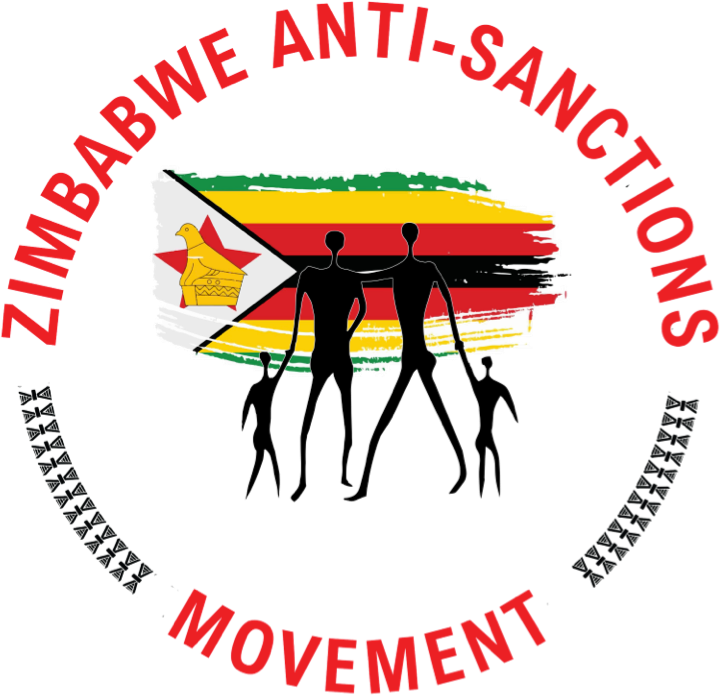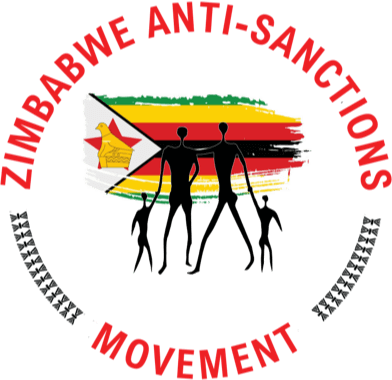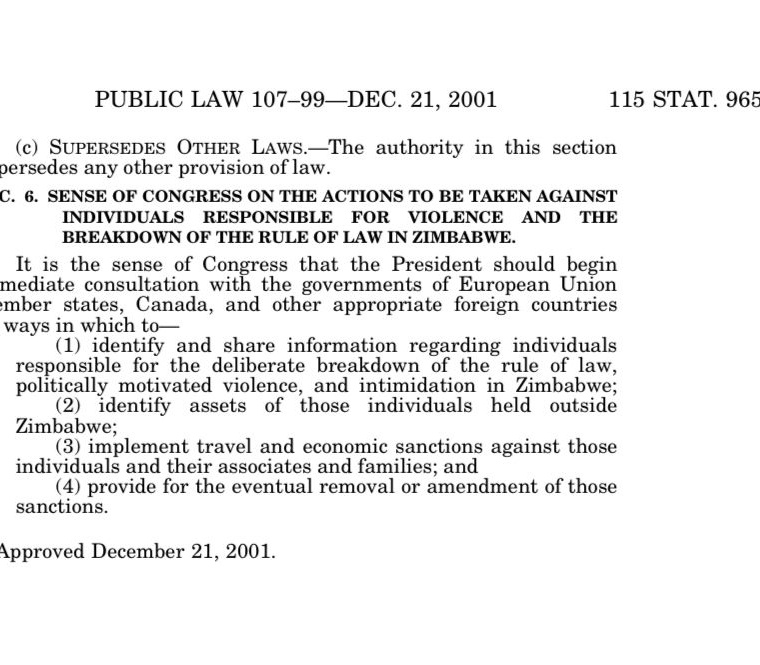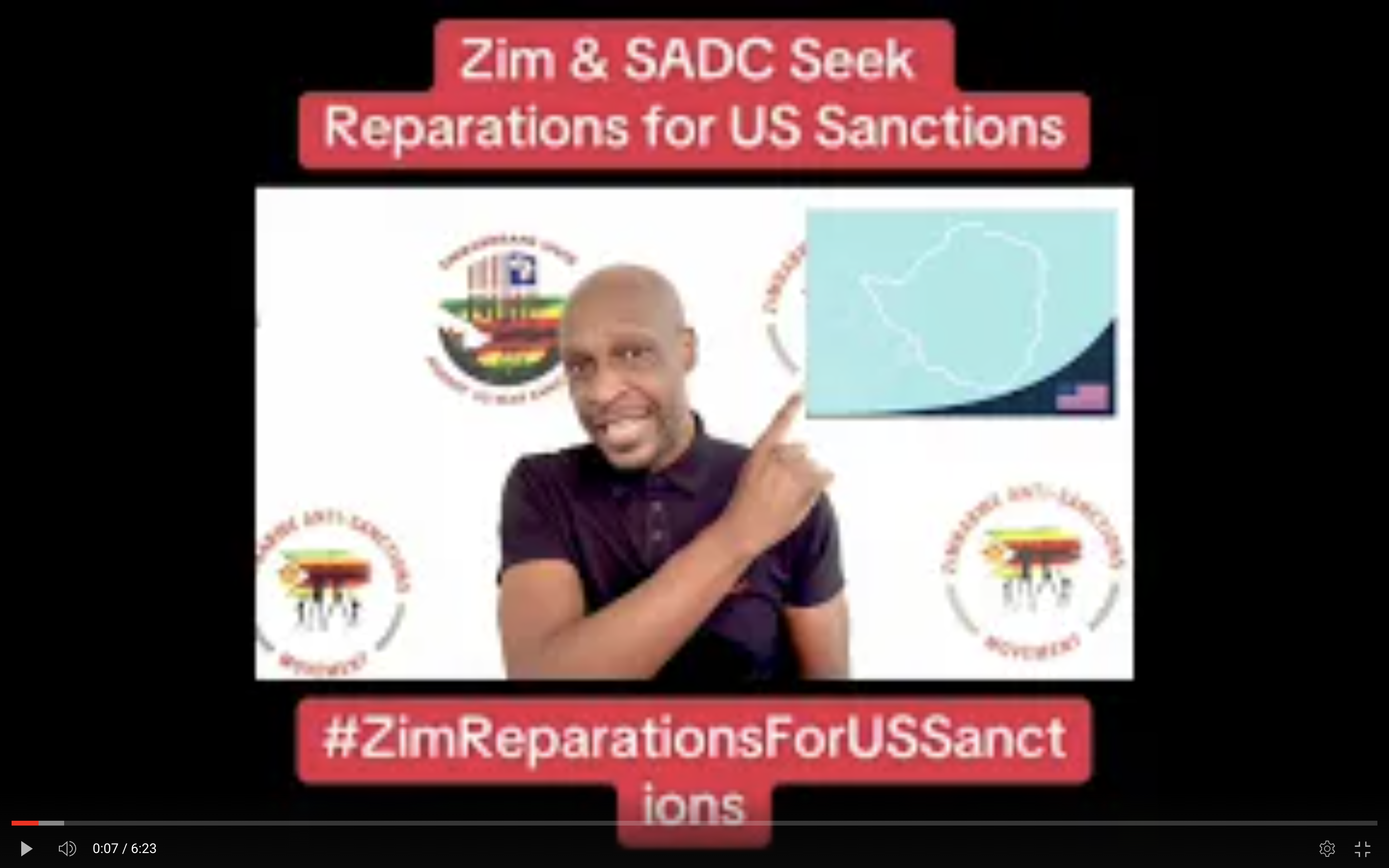ZASM (Zimbabwe Anti Sanctions Movement), a registered civil society organization in South Africa, wishes to lodge a complaint against a misleading news article published by SABC on its online platform on March 27th, 2023 sabcnews.com/sabcnews/zimba… sanctions-over-money-laundering-accusations/.
1. The article titled “Zimbabwe Reserve Bank faces sanctions over money laundering accusations” is a violation of Press Code 10.1, which prohibits the use of misleading headlines.
We believe that the headline is deceptive because there is no prima facie evidence in the quoted Al Jazeera, Gold Mafia 1 documentary, that the Reserve Bank of Zimbabwe is involved in money laundering. Furthermore, no international body or government has announced its intention to sanction the bank for money laundering.
2. The second contravention relates to Codes 1.1, 1.2, and 1.3.
In reference to the first contravention, on March 30th, 2023, Al Jazeera aired Part 2 of the documentary Gold Mafia, which contained allegations and evidence of South African banks’ involvement in money laundering in collusion with the SARB (South African Reserve Bank).
Although there is no similar evidence implicating the Zimbabwe Reserve Bank in money laundering to the same extent as the South African banks, SABC has not written a comparable article regarding South African banks or the SARB. This omission and biased reporting violates Code 1.2 by SABC, as it appears to intentionally portray Zimbabwe in a negative light while portraying South Africa in a favorable light.
3. Additionally, the publication violates codes 1.1, 1.2, and 1.3 in its last two paragraphs. These paragraphs state that “Western countries have already imposed targeted sanctions on Zimbabwe. The sanctions program targets human rights abusers and those who undermine democratic processes or facilitate corruption. The 17 individuals who have been removed have been found no longer to undermine Zimbabwe’s democratic processes and institutions. No sanctions have so far been imposed on any institution.”
However, the sanctions on Zimbabwe, including #S494ZDERA and Executive Order Sanctions #EO13288, #EO13391, and #EO13469, are not targeted but instead are blanket sanctions on institutions of the government of Zimbabwe.
These institutions include ministries, municipalities, companies, banks, financial institutions, and others. The sanctions prohibit anyone from materially assisting, sponsoring, or providing financial, material, logistical, or technological support to the Government of Zimbabwe and companies owned by the government of Zimbabwe.
Examples of the effects of these sanctions include fines imposed on companies like Standard Chartered Bank, Barclays Bank of England, and CBZ Bank of Zimbabwe, for transactions with sanctioned Zimbabwean institutions known as ZB Bank and IDC.
The sanctions also impact institutions such as Zimbabwe Defense Industries, Minerals Marketing Corporation of Zimbabwe, National Railways of Zimbabwe, Zimbabwe Mining Development Corporation and ZISCO Steel, all of which are companies on the list of sanctions.
The UN special rapporteur in her October 2022 report UNHRC/51/33/Add2, on the negative impact of confirmed that the unilateral sanctions on Zimbabwe have negatively impacted institutions like the National Railways of Zimbabwe, Zimbabwe Electricity Supplies and several government departments, including the Ministry of Health, Education, and Finance in a manner that affects civilian human rights in Zimbabwe.
The report also states that sanctions on Zimbabwe were imposed without due process, thus debunking the claim that those sanctions were imposed for human rights violations without any proof of guilt.
It is important to note, therefore, that no Zimbabwean has been tried and found guilty of human rights violations to justify the imposition of these sanctions on purported targets or Zimbabweans as a collective.
The UN rapporteur’s report further confirms that Zimbabwean institutions such as the National Railways of Zimbabwe, Zimbabwe Electricity Supplies, Ministry of Health, Ministry of Education, Ministry of Finance, and other government departments have been negatively affected by sanctions. Additionally, secondary sanctions and overcompliance have seen South African banks deny the Reserve Bank of Zimbabwe US dollar notes as of 2020 and various South African an d international banks cutting corresponding banking relationships with Zimbabwe, thereby implementing secondary sanctions on Zimbabwean banking institutions.
These clear examples highlight how sanctions have been instituted on Zimbabwean institutions, dispelling the false narrative by the SABC that Zimbabwe is under targeted sanctions and there are no sanctions on institutions.
We believe that the SABC deliberately misrepresents this information to mislead readers, despite our attempts to correct these misinterpretations in a previous case before the BCCSA (Broadcasts Complaints Commission of South Africa), and subsequent meetings with SABC management in 2022.
We seek a retraction and correction by the SABC of this misleading information in a similar article that is equally prominent. It is critical that South Africans learn the truth from the media so that they can support Zimbabwe’s fight to end sanctions and fix their country to relieve South Africa of the economic burden it currently faces due to Zimbabwean refugees.
Additionally, the South African government has been actively campaigning against these illegal U.S. sanctions on Zimbabwe. While, concurrently, ZASM is in the Gauteng high court against the U.S. president and South African domicile banks seeking a declaratory against South African domicile banks implementing secondary sanctions on Zimbabweans without trial.
We urge the SABC to stop this malicious and biased assault on Zimbabwe and commit to truthful reporting in the future.
Yours Sincerely,
Rutendo Matinyarare
Chairman: Zimbabwe Anti Sanctions MovementLETTER OF COMPLAINT ABOUT SABC ARTICLE TITLED ZIMBABWE RESERVE BANK FACES SANCTIONS OVER MONEY LAUNDERING ACCUSATIONS.




